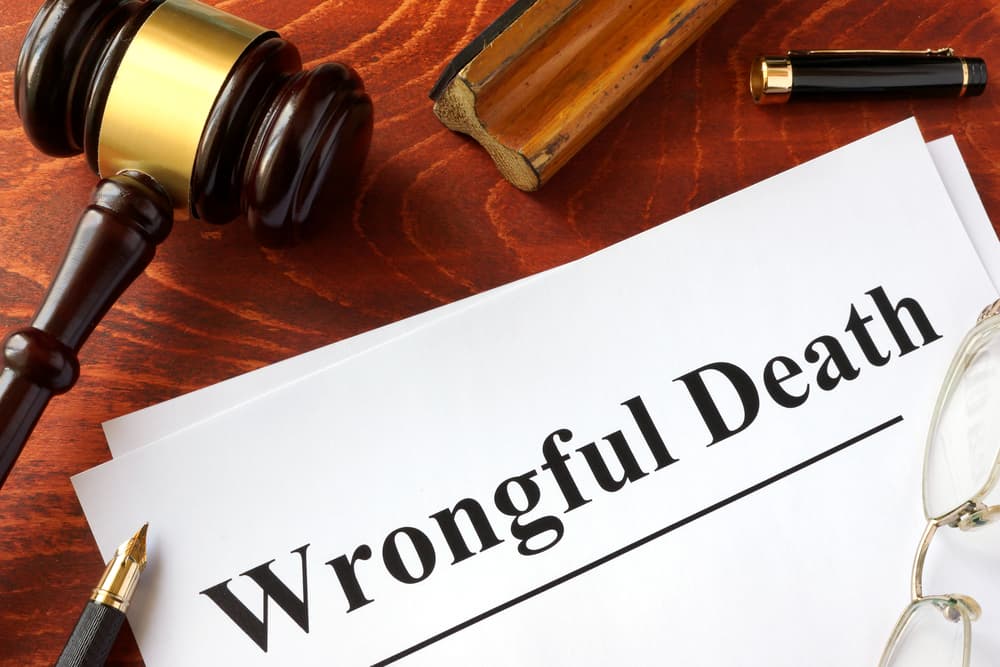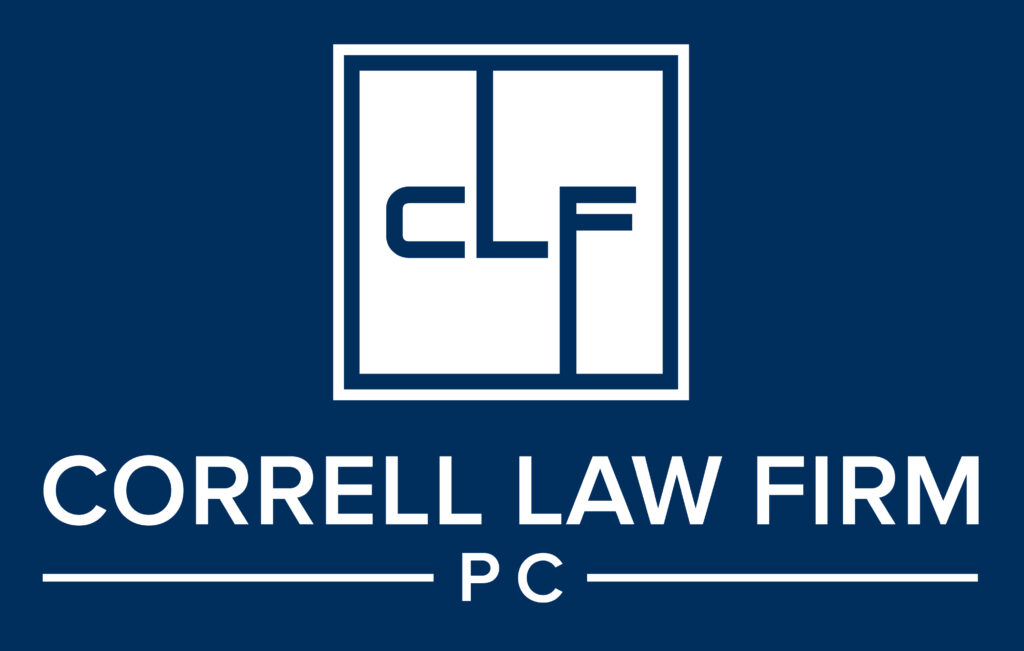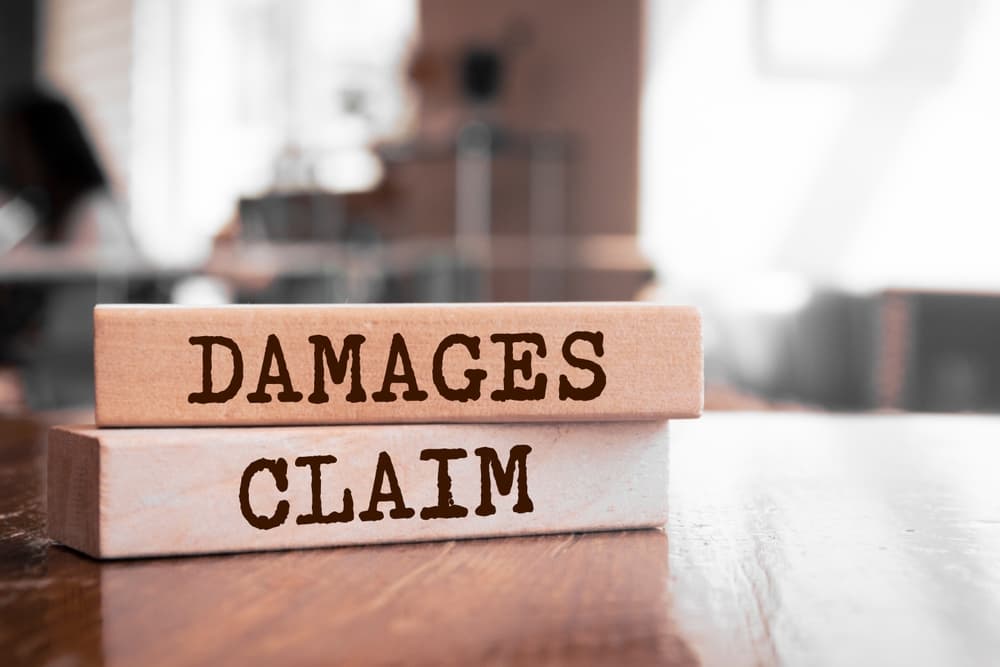Discovering a loved one has suffered a devastating fatality due to another person’s recklessness is often a traumatizing and distressing time for people.
Most people are unsure of what to do or who to turn to for help when wanting to seek justice for the wrongful loss of their loved one.
Many people are also unsure of the difference between negligence and wrongful death.
Seeking the help of a trusted wrongful death lawyer during these distressing times will help you and your loved ones better understand the legal liabilities of those responsible for your loved one’s death. Your dedicated legal team will handle all the intricacies and complexities of the lengthy legal and insurance claim processes, allowing you and your loved ones to have the space to mourn your loss properly.
If one of your loved ones was unjustly killed in an accident due to another party’s recklessness, contact our team of compassionate attorneys today at Correll Law Firm. Call us at (540) 535-2005, and let us help you navigate this painful time.
Common Causes of Wrongful Death
Wrongful deaths are tragic situations that result from another party or parties behaving or operating their property or assets in a reckless manner that puts other parties at risk of incurring harm.

A various number of situations can result in an unfortunate wrongful death, including
- Medical malpractice
- Workplace accidents
- Slip-and-fall accidents where a property owner has poorly and unsafely maintained their property
- Impaired driving accidents, including the use of alcohol, illicit drugs, prescription medications, and over-the-counter medications
- Reckless driving accidents, whether the driver is a passenger vehicle, rideshare vehicle, commercial truck driver, or motorcyclist
- Product liability accidents where a product has a defect or manufacturing error that results in a user getting harmed
- Acts of violence, including assault and arson, that result in a person’s unfortunate death
If one of your loved ones has suffered a painful wrongful death, call our team today at Correll Law Firm to get the help you deserve in seeking justice for your unfortunate loss.
Wrongful Death Accidents in Virginia
An unfortunate number of factors can result in a wrongful death in Virginia, making this type of devastating loss more common than most people notice.
Wrongful deaths caused by unintentional injuries or accidents, like a slip-and-fall accident, are a significant contributor to these types of fatalities. According to the Centers for Disease Control and Prevention (CDC), more than 227,000 people suffered an unintentional death in the United States in one recent year. The CDC reports that unintentional injuries are among the leading causes of death for many age groups. Unintentional injuries are the
- Leading cause of death for people between the ages of one and 44
- Third leading cause of death for those between the ages of 45 and 64
- Fourth leading cause of death for infants younger than one year
- Seventh leading cause of death for people over the age of 65
Wrongful deaths are also often caused by traffic-related accidents. The National Highway Traffic Safety Administration (NHTSA) estimates that 35 people are killed every day from an alcohol-related vehicle accident in the United States, with a total of 13,524 people suffering a fatality from a drunk driving accident in one recent year.
The NHTSA calculates that 298 people suffered a fatality in Virginia in one recent year due to an alcohol-related traffic accident. The NHTSA further reports that 299 people died that same year from speeding-related accidents.
Can I Recover Compensation for the Wrongful Death of My Loved One?
Learning of the wrongful death of a loved one is a painful and traumatic experience for most people to manage. They are left with a deep sense of loss and anguish, all while trying to process how this could have happened.
By seeking the help of a trusted and compassionate wrongful death attorney, you can recover compensation for the damages caused by your loved one’s wrongful death, including

- Conscious physical pain suffered by your loved one
- Conscious mental distress and anguish suffered by your loved one
- Property damage
- Medical bills
- Funeral expenses
- Lost income and future earnings of your deceased loved one
- Loss of consortium or companionship
- Potential inheritance reduction
- Punitive damages
Contact our compassionate team at Correll Law Firm today, and let us help you recover compensation for the devastating and unfortunate wrongful death of your loved one.
What Is the Difference Between Wrongful Death and Negligence?
Most people find it a bit confusing when trying to understand the difference between negligence and wrongful death when processing the unfortunate loss of their loved one.
Negligence
Negligence is the failure to take reasonable care in a situation. It can result from an action or an omission of actions when the person has a duty to act.
Common examples of negligent behavior include reckless driving, drunk driving, property owners not safely and responsibly maintaining their property, trucking companies not properly and responsibly maintaining their fleet of vehicles, and businesses or companies releasing a product with a defect or manufacturing error.
Wrongful Death
A wrongful death is a death of a person that results from another party’s negligent behavior or intentional actions, such as acts of violence, assault, or arson.
Contact our trusted team today at Correll Law Firm if your loved one has suffered a wrongful death due to another party’s negligence.
Why Choose Correll Law Firm?

Suffering the painful wrongful death of a loved one due to another party’s negligence is a traumatic and disheartening experience. Most people feel distraught at their loss and unsure who to turn to for help.
Our team of attorneys at Cornell Law Firm understands how distressing and overwhelming the aftermath of the wrongful death of a loved one is for most people.
Beau Correll founded Correll Law Firm in 2009 to focus his passion for the law on helping his local community by providing an unyielding commitment to defending their cases against large insurance companies.
He passionately advocates on his client’s behalf to help deliver justice and fair compensation for their injuries and wrongful deaths caused by another party’s negligence.
Mr. Correll and the Correll Law Firm are respected nationwide and have attracted the attention of large domestic and international media companies such as NBC, CBS Evening News, CNN, Vice News, and BBC.
He strives to be a beacon of light for his clients while they navigate the challenging and complex legal and insurance fields after suffering an injury or wrongful death.
At Correll Law Firm, we start every client relationship with a free consultation. We invite all new clients to a complimentary consultation to learn more about our firm while we listen attentively to their unique situation and desired outcome for their case. Our diligent team will guide each client on the best path forward for their individual case.
We strive to lighten our clients’ stressful load by managing their insurance claim processes and maximizing their chances to recover compensation for the damages caused by their accidents.
Our firm has successfully recovered millions of dollars in compensation for our clients, including
- $1,000,000 for a motor vehicle crash
- $950,000 for a motor vehicle crash that caused orthopedic injuries
- $475,000 for a motor vehicle crash
- $450,000 for medical malpractice
Our clients often leave us positive reviews expressing gratitude for our dedicated assistance with their cases.
Amanda contacted us when she was recently injured. She appreciated how quick, responsive, and articulate our team members were in their communications. She also valued how important it was for us to understand her unique situation fully.
Chris was happy with how responsive we were to his needs. We promptly answered every question and concern he had throughout the process. Our friendly approach to his case, matched with our strong and aggressive advocacy in the courtroom, gave him confidence throughout the lengthy settlement process.
Brittany was concerned her medical provider had mistreated her. She tried to seek help from multiple other law firms, but they were unwilling to work with her. Our team listened to her situation, provided honest feedback, and set out with determination to help her build her case. She was very pleased with how quickly we delivered positive results on her case, accomplishing more than anticipated.
Our two offices in Virginia are located conveniently in
- Front Royal – On North Royal Drive just south of West 2nd Street
- Winchester – On Plaza Drive just off West Jubal Early Drive, east of Highway 11
Call us today to schedule your free consultation with one of our trusted team members at Correll Law Firm.
Who Can File a Wrongful Death Claim in Virginia?
Virginia law states that in the event of a wrongful death in the state, the deceased person’s personal representative is the only entity that can legally bring forth a wrongful death claim on behalf of the deceased.
The state further defines a personal representative as the executor of the decedent’s will or the administrator of their estate.
There is an exception to this law in the event of an unfortunate wrongful fetal death. In that instance, the natural mother may bring forth action on the fetus’s behalf. If the natural mother also dies or becomes disabled, then her estate’s administrator, her guardian, or her personal representative may bring action in pursuit of a wrongful death claim.
How Do I File a Wrongful Death Claim?

Most people commonly feel lost and distraught while trying to navigate the painful and distressing aftermath of a loved one’s wrongful death. The thought of pursuing a wrongful death claim alone without professional help often feels overwhelming and confusing.
Seeking the help of a trusted and professional wrongful death lawyer in Virginia will help make this stressful and devastating time much easier for you and your loved ones to get through.
It is essential to elicit the help of an attorney as soon as possible after learning of your loved one’s unfortunate wrongful death so that you can meet Virginia’s statute of limitations while seeking justice for your loved one’s devastating loss.
The insurance claim process for wrongful death is complicated and extensive. Many insurance companies will try to minimize or eliminate the compensation they must pay, stalling the process. Insurance companies will also often employ tactics to use the claimant’s words and statements against them while attempting to shift the blame of the accident to the deceased and away from those negligent parties who are responsible.
Working with an assertive and knowledgeable wrongful death lawyer will help ensure you protect your rights during this challenging and complicated time while maximizing your chances of recovering compensation for the unjust death of your loved one.
Your dedicated legal team will fully prepare you and your loved ones for what to expect throughout the complex process, making sure that there are no surprises. They will communicate clearly and effectively throughout the process, promptly answering your questions and addressing any of your concerns.
They will manage the insurance claim on your behalf, including advocating for your justice, filing the initial insurance claim, handling all correspondence with the insurance company and its representatives, receiving and negotiating the settlement offer, and filing a lawsuit if necessary.
Your distinguished legal team will diligently prove the fault of your loved one’s wrongful death lies with the negligent parties responsible and not with your deceased loved one.
Having the help of a skilled and experienced wrongful death attorney will ensure your compensation settlement encompasses all the damages suffered from your loved one’s wrongful death, including conscious physical pain suffered by your loved one, conscious mental distress and anguish suffered by your loved one, property damage, medical bills, funeral expenses, lost income and future earnings of your deceased loved one, loss of consortium or companionship, potential inheritance reduction, and punitive damages.
Call our team at Correll Law Firm today, and let us help you manage this complicated insurance claim process for the wrongful death of your loved one.
Work With a Trusted Wrongful Death Lawyer
Managing the traumatic and devastating aftermath of the wrongful death of a loved one is a severely painful and distressing experience.
Having the help of a trusted wrongful death lawyer during this time will allow you and your loved ones to focus better on properly grieving and mourning the loss of your loved one, knowing that a compassionate legal team is handling your claim.
Call our team at Correll Law Firm today at (248) 831-1507 to schedule your free case consultation. Let us help you receive the justice you deserve for your loved one’s unfortunate wrongful death.
Our two offices in Virginia are conveniently located in
- Front Royal – On North Royal Drive just south of West 2nd Street
- Winchester – On Plaza Drive just off West Jubal Early Drive, east of Highway 11
